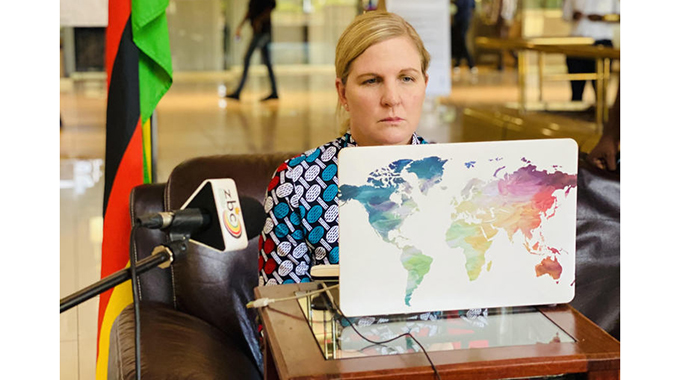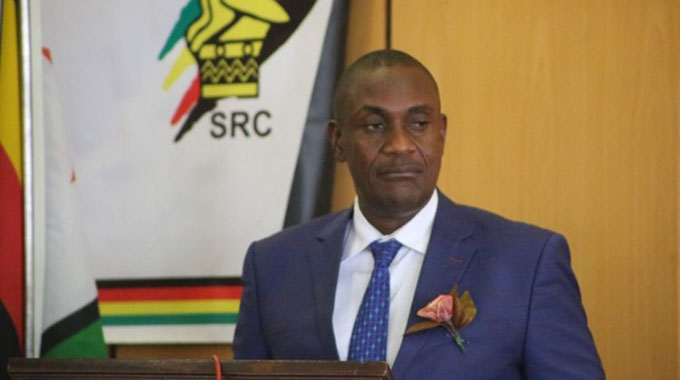Dawn of Africa’s story of liberation

The construction of the Museum of African Liberation in Harare represents a significant milestone in Africa’s drive to come to terms with its own collective memory and celebrate its rich history and identity which the continent must be able to pass on to future generations.
Zimbabwe and the rest of the continent will now have a rallying point to engage with and see themselves in their own culture, history and own heritage on African soil.
More importantly, the construction of the Museum of African Liberation will present an opportunity for Africa to tell its own story, a platform that has long been outstanding.
The centre, will help us understand our past, present and the future, something which is more fundamental for us who are in Africa and for those who are in the Diaspora to document our mark in the march of the world.
It is important for Africa to look in the rear-view mirror as it marches ahead to attain its goals and aspirations.
It was quite befitting that President Mnangagwa presided over a ground-breaking ceremony recently to mark the commencement of the construction of an African museum that will document, preserve and promote the African liberation legacy on a 92-hectare piece of land close the National Heroes Acre and the national sporting arena in Harare — the National Sports Stadium.
The event drew massive support and liberation icons, historians, archaeologists and diplomats accredited to Zimbabwe attended the ceremony to register their support for this project that seeks to build the collective African memory. The project will have four facilities that include, monument of African liberation, the Museum (inspired by African art, philosophy and ideology,) premises for meetings, events and conferencing and an amusement park.
Participants present at the event were unanimous in their solidarity messages that there was no better opportunity for Africa to tell its own story than through this museum.
In his keynote address, President Mnangagwa said the project will put to rest the one-sided Euro-centric narratives which have been perpetuated in the public space for too long.
“We are marching together bonded by the ideals of Pan-Africanism, Ubuntu and African Renaissance through the documentation, protection, preservation and promotion of our rich liberation legacy,” he said.
“Building from the Africa Fact Book, this project will coordinate the documentation of African liberation stories from across the entire continent, told by actors and participants.
“The pendulum has surely shifted and the story will now be told first and foremost from the vantage point of Africans and by us, Africans.”
Vice President Kembo Mohadi said it was befitting that Zimbabwe hosts the museum given that the last hurdle of the liberation struggle was fought here in Southern Africa.
“The museum is going to make us as Africans tell our own story from Africans themselves. All the stories about Africa that have been told were being told by other people,” he said.
Acting Dean of African Diplomatic Corps, Mr Gabriel Riak, who is also South Sudan’s Ambassador to Zimbabwe, said they were fully behind the idea and would undertake a lot of initiatives to ensure its success.
“It is also important that an African museum is established and presented by African people with a truly Pan-African narrative being told as a proud heritage to our children and future generations,” he said. He challenged the Institute of African Knowledge spearheading the project to tap into the diplomatic community’s knowledge and experience in telling the true African story at the museum. Our local, continental and international heroes who went before us and those who are still with us set themselves as champions of our liberation and today as we stand here there is no better way we can show our appreciation and respect for their efforts towards the whole of African continent,” Ambassador Riak said.
Head of the Institute of African Knowledge, Professor Simbi Mubako said the idea of an African museum was supported by countries on the continent, including the Government of Zimbabwe which provided a 92 hectare piece of land. He said they held seminars with African ambassadors accredited to Zimbabwe, who threw their undiluted support to it.
Prof Mubako said regional leaders supported the idea and singled out former Namibian President Sam Nujoma, who said the idea was long overdue.
“As the African continent, it was because of unity that we became independent. No country could have attained its independence without the support of other countries,” he said.
“The Government of Zimbabwe has been extremely generous, they promoted the idea from the beginning and gave us this site as the home for the museum.”
He expressed optimism that the project will get support from African countries.
“We believe that although it is a mammoth task the continent of Africa supported by its friends will ensure that the project is realised,” he said.
During the event, several families of Zimbabwe’s liberation icons presented artefacts to President Mnangagwa to be kept in the museum once it is complete.
They included Angelina Tongogara, widow to the late Zanla commander General Josiah Magama Tongogara, who presented her husband’s trademark camouflage and a pistol that the late national hero used.
Other artefacts that were presented belonged to Cde Leopald Takawira, and former Vice Presidents Simon Muzenda and Joseph Msika.
Roman Catholic Priest, Father Emmanuel Ribeiro presented a television set which he said dated back to 1954, which was watched by liberation icons such as Cde Takawira, founding President Robert Mugabe while they were discussing about the liberation struggle.
Mrs Tongogara said she kept the uniform for the past 40 years.
“I have kept the uniform for the past 40 years as if I knew that there will be a museum,” she said.
The Takawira family presented a trunk, camera and a radio.
During presentation, President Mnangagwa said Father Ribeiro and Prof Mubako were at one stage classmates. “For my 10 years in jail, Father Ribeiro was my pastor. After I completed serving time in prison, Prof Mubako was my law lecturer on constitutional law and I am happy that I have a distinction,” he said.
Head of secretariat for the Museum, Ambassador Kwame Muzawazi said artefacts from other liberation icons such as Kwame Nkrumah would come to Zimbabwe after they foiled an attempt by Britain and other Western countries to have them.
He implored the young generation to take an active role in the documentation, and preservation of the liberation legacy notwithstanding that they were not yet born when the liberation struggle was executed.
“We want to tell them that you do not have to be there when Jesus was there to preach the gospel,” he said.
He said going forward, he will lead a global fund raising and exchange programme on the best practices.
“The collection of artefacts which has started in Zimbabwe will go continental and global. We hope that in 2021 the museum construction will start in earnest and by I January 2023 we will come back here not to see this dust, but to open doors to the museum,” said Ambassador Muzawazi.
Zimbabwe and most other African countries are still battling for the restitution and repatriation of priceless African art and cultural heritage and human remains of its anti-colonial war heroes which are still being held in European museums and private collections.
There is increasing global focus and debate on this. Many of these works and human remains in Western museums and were acquired by European countries from Africa through armed pillage, military expeditions, missionary collections and without sufficient documentation of consent or adequate compensation. Racist attitudes that underpinned colonialism have, for the most part, not changed and this makes the debate contentious and the construction of the Museum of African Liberation more urgent than ever before.









Comments